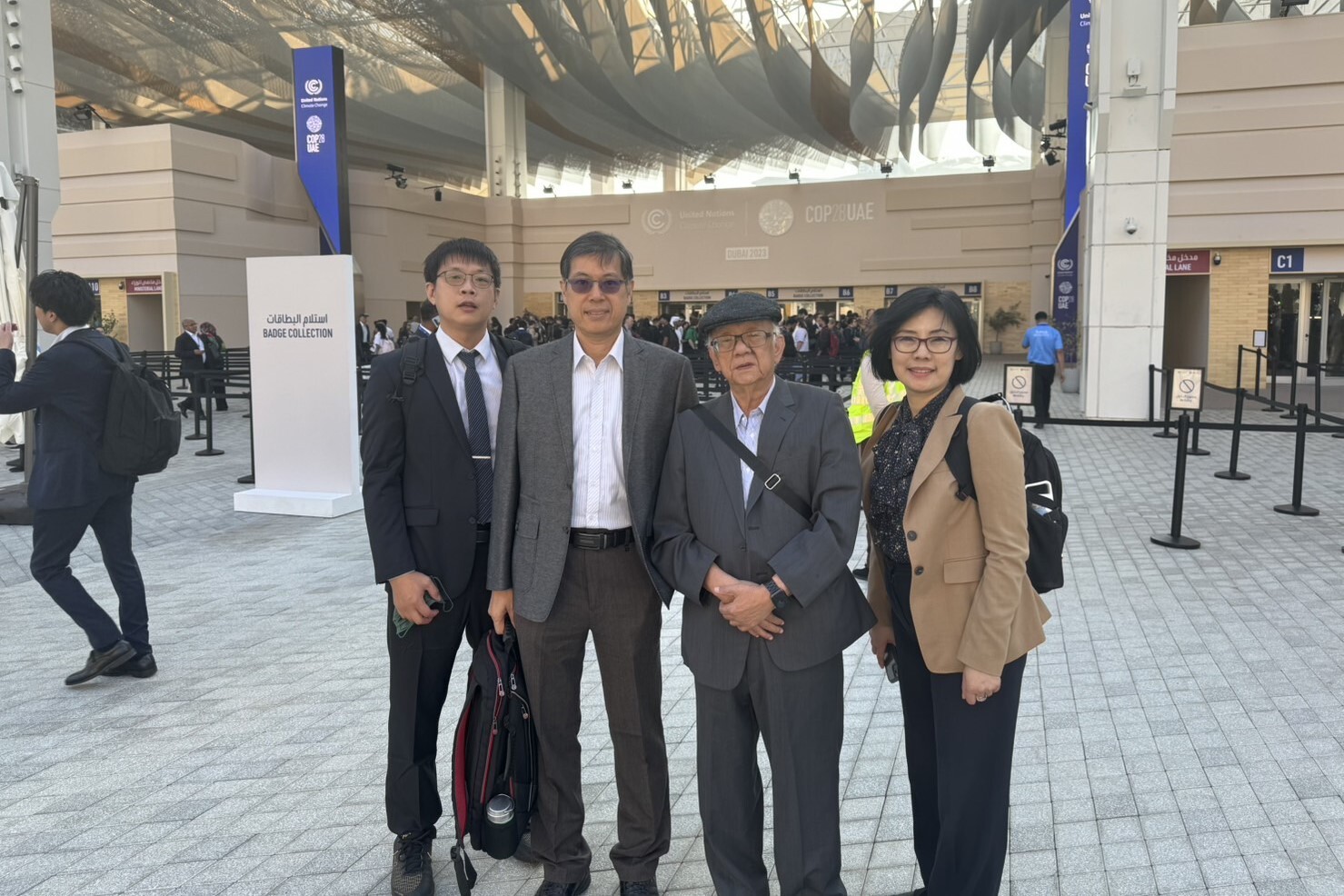Taiwan Showcases Carbon-Neutral Technologies at COP28, Leading the Global Transition Away from Fossil Fuels
Written by Department of Chemical Engineering,NCKU. Image credit to NCKU News Center.
As world leaders gather at the United Nations Climate Change Conference (COP28) in Dubai, Taiwan is set to showcase its groundbreaking carbon-negative technologies, marking a significant stride in the global effort to phase out fossil fuels and combat climate change.

In collaboration with the Taiwan Climate Alliance, National Cheng Kung University (NCKU) will host a pivotal forum, titled “Maximize Earth's surface resources for a beneath-fossil-free future: e-Methane, e-Ethane, e-Propane, green-Syngas.”
In collaboration with the Taiwan Climate Alliance, National Cheng Kung University (NCKU) will host a pivotal forum, titled “Maximize Earth's surface resources for a beneath-fossil-free future: e-Methane, e-Ethane, e-Propane, green-Syngas.” This event will highlight Taiwan’s innovative strides in deploying “Synthetic Green Natural Gas (e-methane)” and “Biogas Reutilization” technologies. These advancements not only demonstrate Taiwan's leadership in CO2 resource technology but also underline its commitment to international collaboration for positive climate action.
Professor Chen Chih-Yung, leader of the low-carbon division of Taiwan's Net-Zero Technology Initiative, asserts the critical role of Taiwan in the global net-zero transformation. Emphasizing Taiwan's inability to remain on the sidelines, he highlights the country's commitment to utilizing cutting-edge technology to achieve the 2050 carbon neutrality goal. This presence at COP28 is a testament to Taiwan's strength and capability, embodied in the ‘Made in Taiwan’ initiative.

Professor Chen Chih-Yung, leader of the low-carbon division of Taiwan's Net-Zero Technology Initiative, asserts the critical role of Taiwan in the global net-zero transformation.
Shifting from an oil-based to a carbon cycle economy, Taiwan is adopting alternatives like biomass, recycled plastics, and CO2 emissions from chimneys to replace traditional carbon sources. The NCKU’s carbon-negative pilot factory is a prime example, converting CO2 into synthetic green gases such as e-methane, e-ethane, and e-propane, aligning with major strategies in the European Union and Japan's 2050 green energy plans. Professor Chen also addresses the challenges of scaling carbon capture technologies and the need for a scalable carbon cycle economy. He emphasizes the global trend towards deploying carbon capture facilities and investing in renewable energies, thus contributing to a zero-carbon economy.
Furthermore, Taiwan is tackling the challenge of processing nearly 20 million tons of organic waste annually, converting it into valuable resources. The dry reforming technology (DRM) presented at COP28 transforms methane and CO2 from biogas into green synthetic gas (CO+H2), providing a low-carbon solution for the steel and petrochemical industries and generating green hydrogen for domestic use.
Through its participation in COP28, Taiwan demonstrates its commitment to a sustainable, fossil fuel-free future, showcasing its innovative technologies and solutions that contribute significantly to the global environmental movement.
Provider:
NCKU News Center
Date:
2023-12-22



